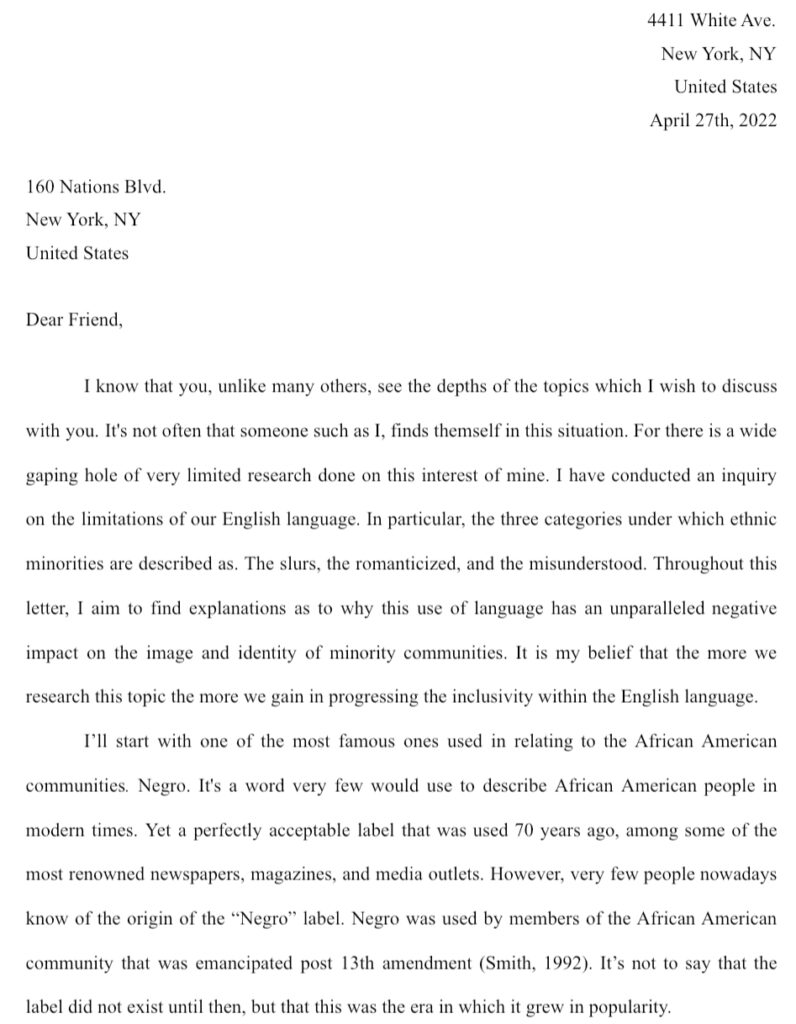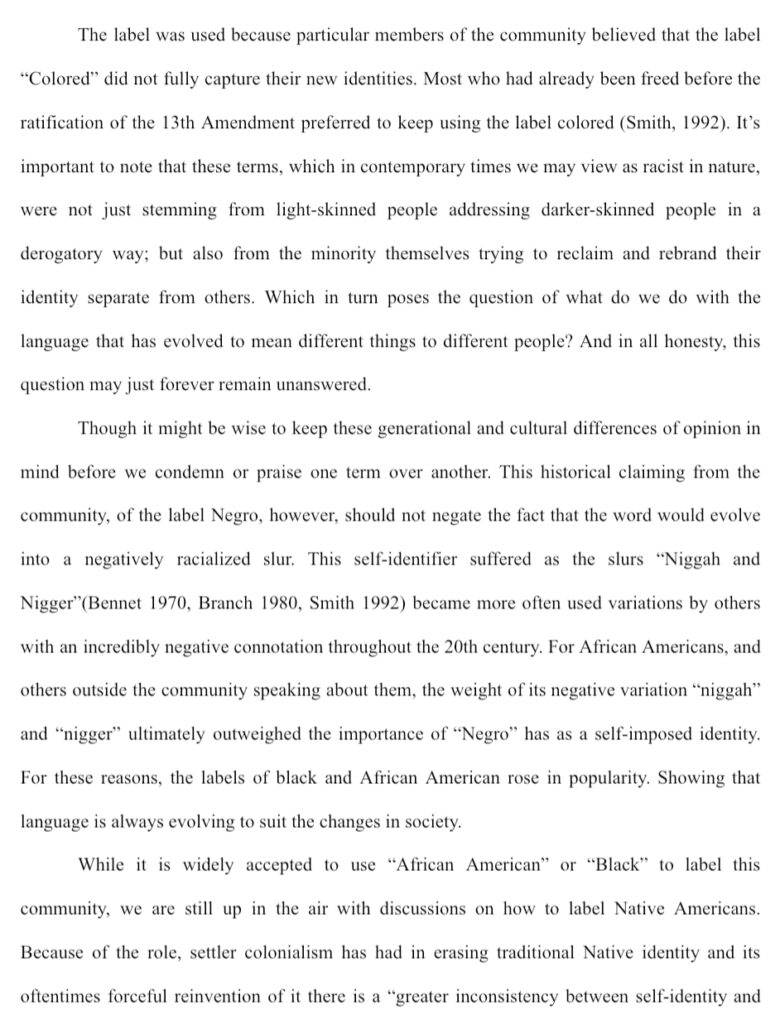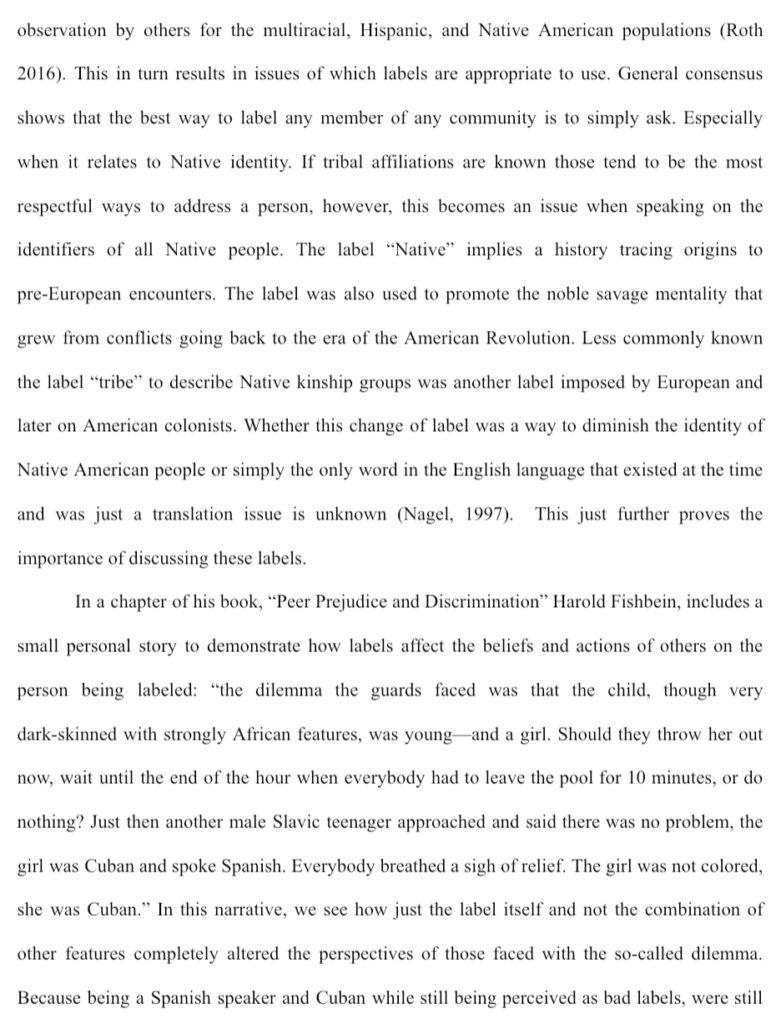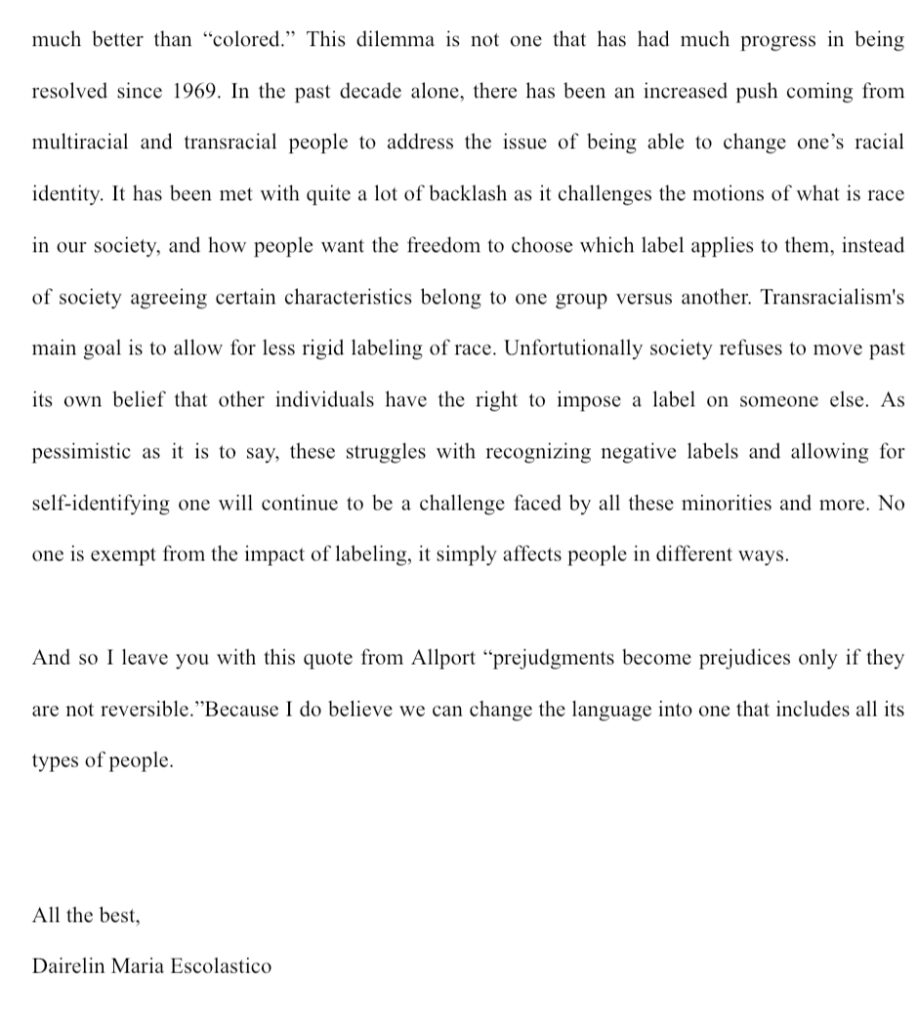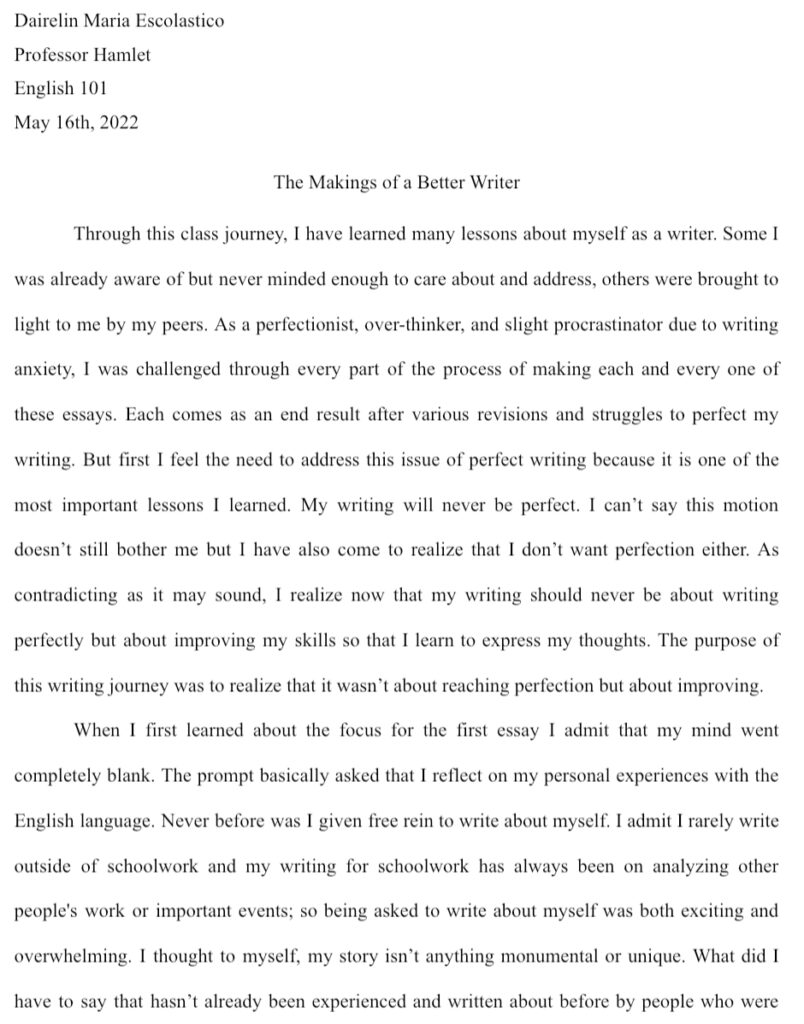
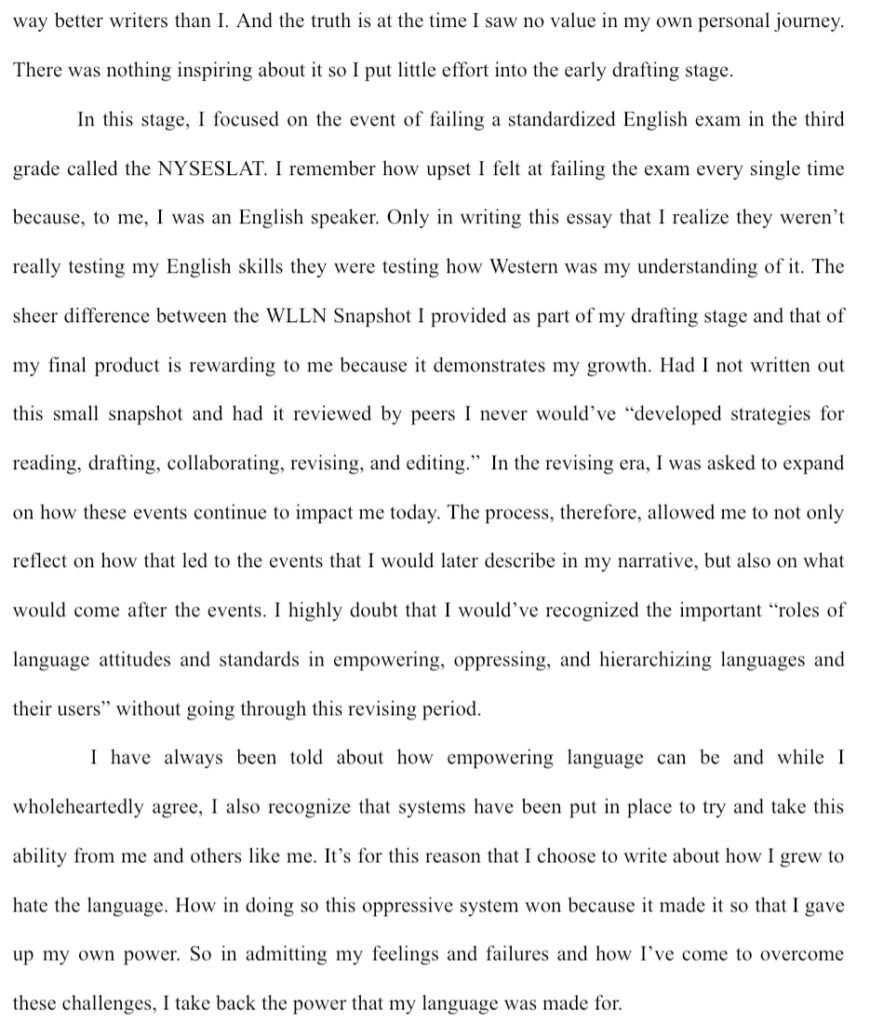
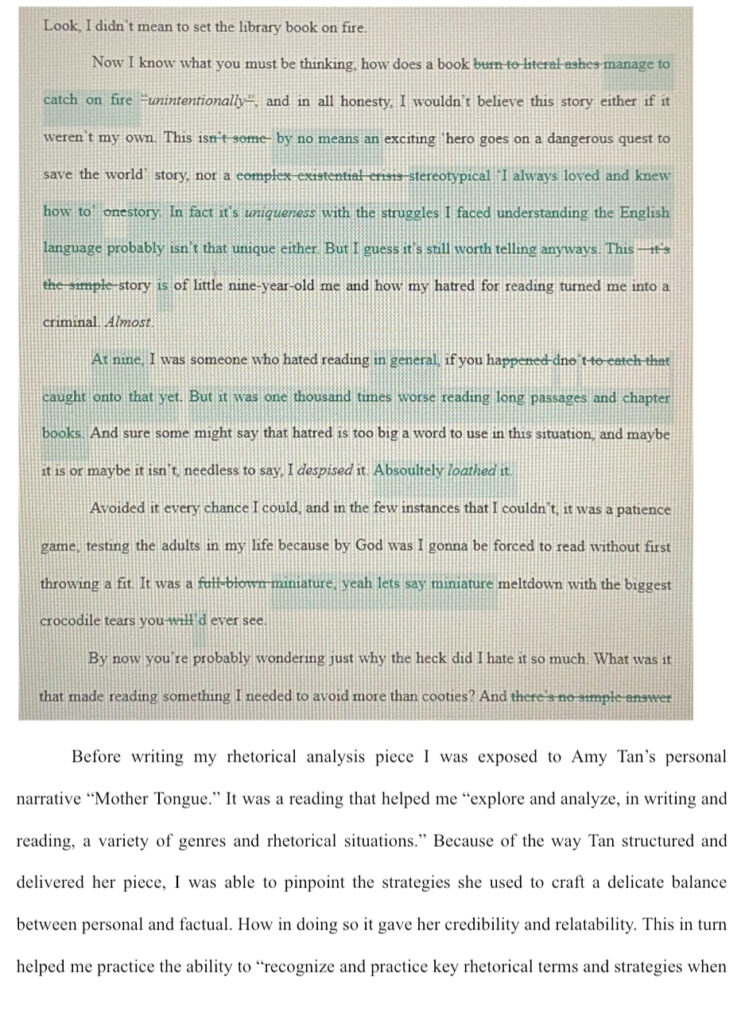
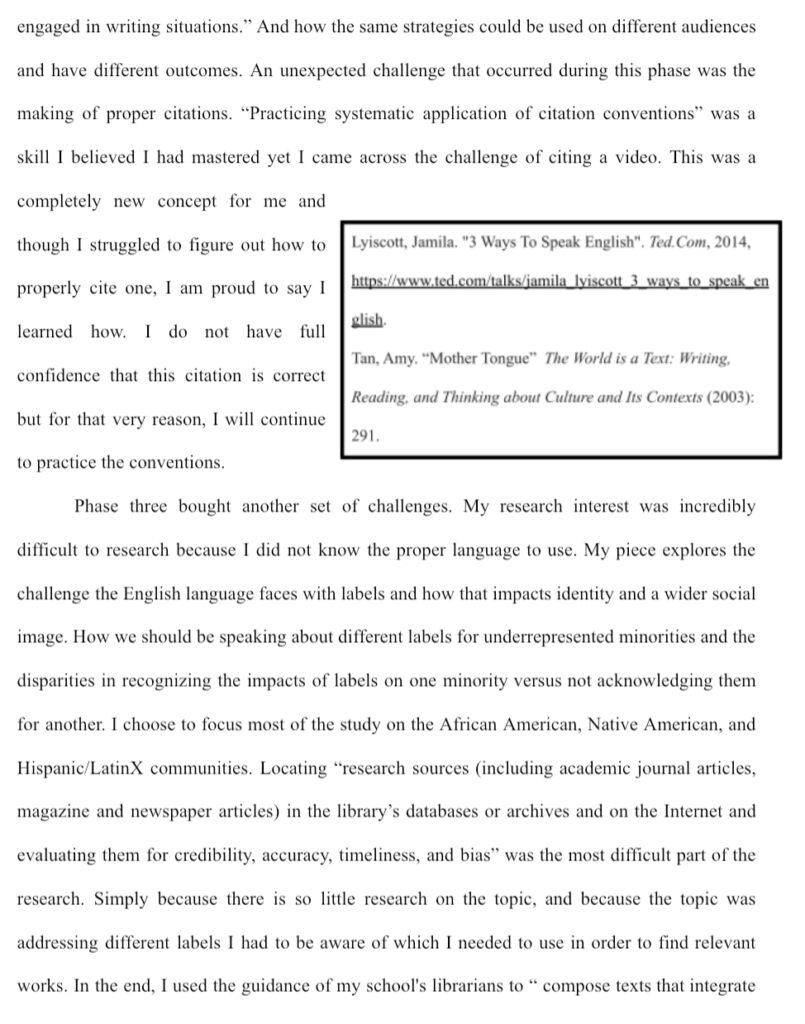
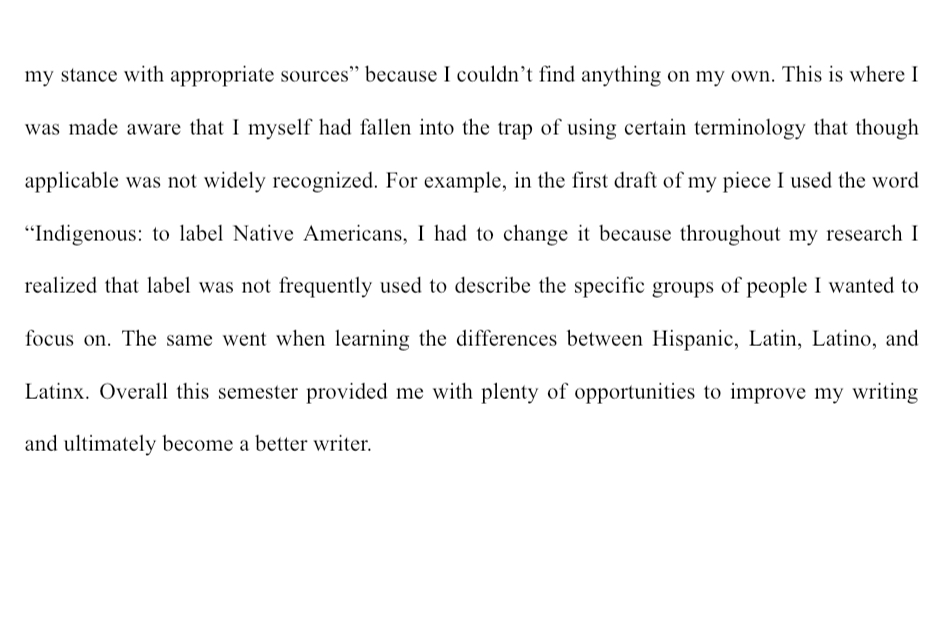
Phase I: The Written Language and Literacy Narrative
Dear Reader,
This assignment was one of my biggest writing challenges to date. Throughout all my years of learning the English language, I have rarely been asked to write about myself. It’s been drilled into me that what I have to say and offer up doesn’t matter unless it’s supported. That my personal experiences should not influence the way I write or what I write about. It’s quite disheartening that it’s taken me until this point, reflecting upon my experience in an academic setting to realize that my story matters too. That what I have been told to believe about my experience is no less important than that of great recognized writers.
This assignment has helped me recognize “the role of language attitudes and standards in empowering, oppressing, and hierarchizing languages and their users, and be open to communicating across different languages and cultures.” Even as I write this I attempt to sound proper and academic in a way that I’ve been taught formal letters should sound like. And though I understand that I need not do this, my mind still tricks me, tells me that this must be perfect, that it’s not well written. This is ultimately just another consequence of being told to revise my writing to perfect it because the real goal is never really to improve myself but to be good enough to impress others. For instance, in the drafting stage of my written language and literacy narrative, I was left with positive feedback from my classmates and absolutely no criticism. I saw it as them trying to be nice but not at all helping because something had to be wrong. There was just no way that it could be good. I now see the backwardness of this type of thinking so I commit myself to recognizing the self-imposed and social oppressiveness of not using “perfect” English and fight against it with all my writing from this point forward.
Speaking of my writing, I wrote this assignment about myself in a way that mimicked one of my favorite authors of all time, Rick Riordan. I thought that using his relatively easy to comprehend and attention-grabbing writing might help my audience become more invested in my story even if they couldn’t personally relate to it because of how absurd it is. Furthermore, considering my audience has really helped me develop a more engaging way to tell my story and opinions. To give more thought to what words I wanted to use and how a different set of vocabulary could go a long way. Before this task, all my work would read stiff and academic. Something I would personally find so boring that I wouldn’t read it myself if I didn’t have to.
I hope that in reading this I’ve enlightened you at least a little bit.
Yours Truly,
Dairelin Maria Escolastico
The Drafting Stage
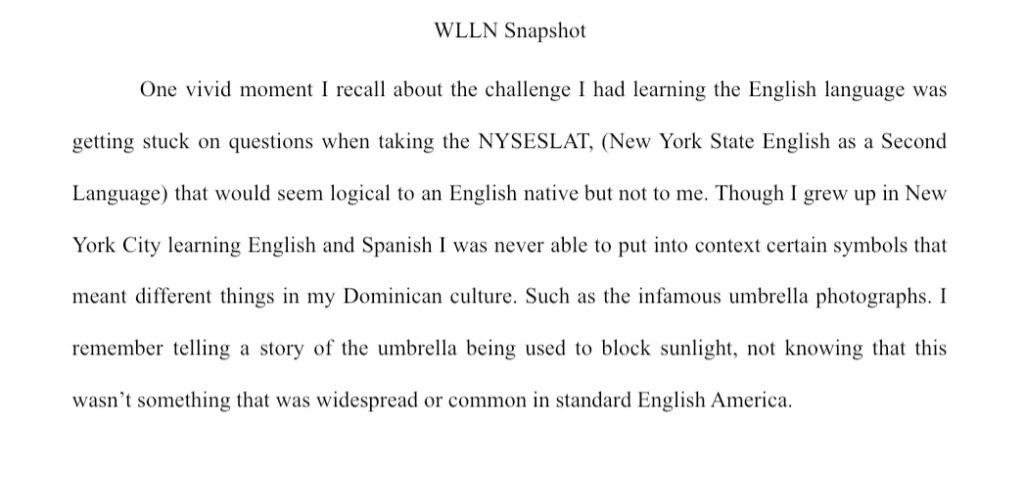
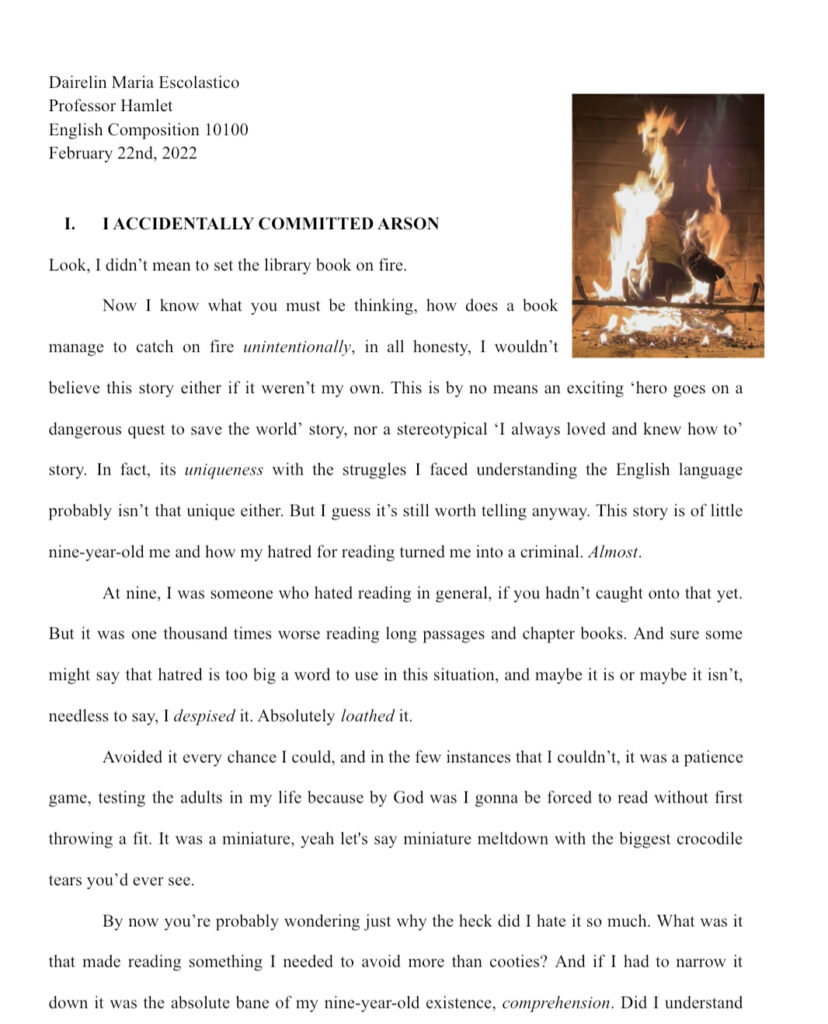
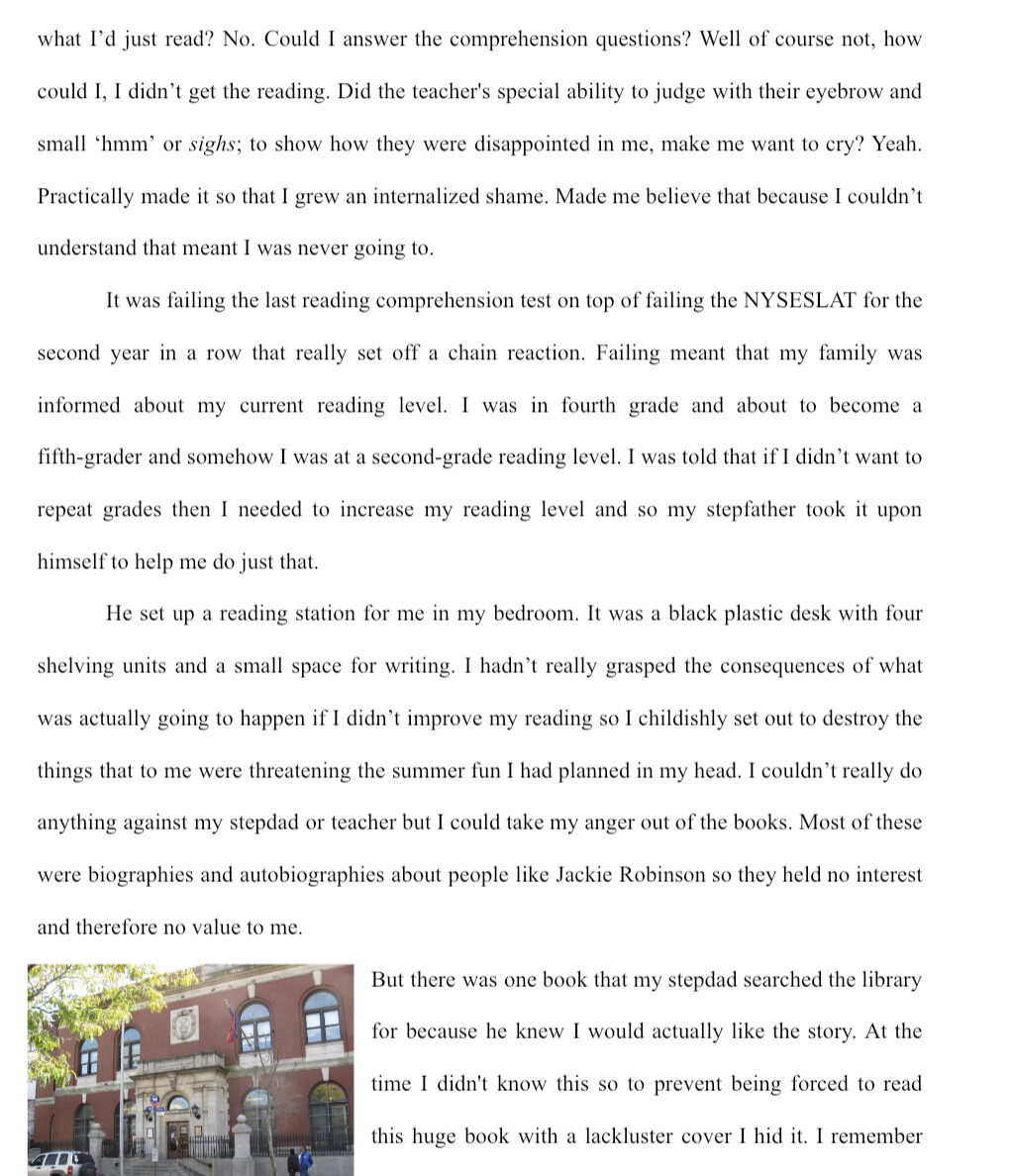
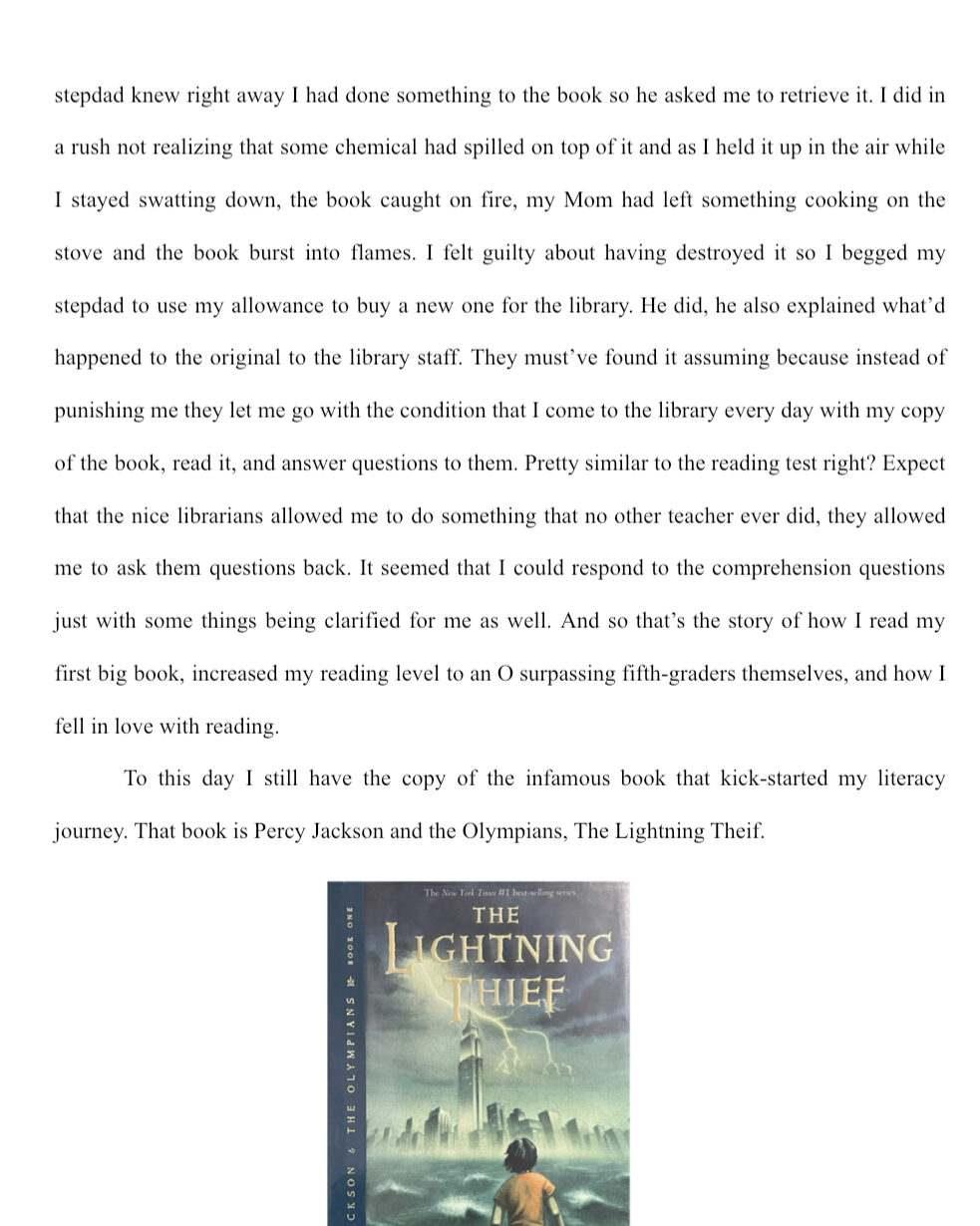
Phase II: The Rhetorical Analysis Essay
Dear Reader,
I’ve written countless rhetorical essays throughout my academic life before taking this English course, but this one presented itself as a challenge from the start. When I first learned how to write these essays, I was often told to focus on the authors’ purpose and their methods to inform their audience of it. That was the aspect of the rhetorical situation that I was comfortable discussing. One of my course outcomes for this essay was to “explore and analyze, in writing and reading, a variety of genres and rhetorical situations.” Never before was I instructed to pay so much attention to the authors’ intended audience in analyzing the rhetorical situation. In fact, I remember many instances where my previous English teachers discouraged me from thinking about the audience. They had drilled into my head that what the audience actually got from the text didn’t matter half as much as what the author’s message was. I remember questioning this logic but never really going against it because in doing so I was told to edit it out of my piece because it was irrelevant and repetitive.
I think this is where I had one of my major problems with writing this essay. Again, never before did I have to consider the intended audience as something equally important to the other aspects of the rhetorical situation. When I originally wrote about Tan’s message I used a lens of our modern-day general audience, which is pretty diverse and somewhat more progressive in talking about issues like this. However, in editing, I realized that this whole section had to be rewritten. I could not impose this audience onto the piece because it would alter the intention of Tan’s message. This is why I forced myself to keep reminding myself that this is a piece for 1990s white America. I can not ignore the relevance of this audience in connection to Tan’s intentions.
Speaking of challenges, an unexpected one I came across in writing this piece was actually what I have always perceived to be the simplest thing to do, which is the work cited page. I haven’t been more confused about how to cite a piece of work since I learned how to do it. The concept of citing a video has never come up to me in academia before, and my inability to do it still surprises me. Videos are resources I use on a daily yet giving credit to Lyiscott’s speech was not something I was prepared for. Though I am still not confident about how well I cited my sources, I do believe that this was a small but valuable lesson, because sooner or later in my academic career I was going to face this challenge. I’m glad it happened with this essay instead of years from now.
Sincerely,
Dairelin Maria Escolastico
First Draft of Introduction:
Despite the wide range of world languages that are widely known, native English speakers have managed to obtain a superiority complex like no other. With their confusing contradictions on what the English Language should sound like, critiquing accents and language as if their use of it isn’t also ridiculously pompous. Behaviors that clearly imply to “speak English” but only in the way they find acceptable.
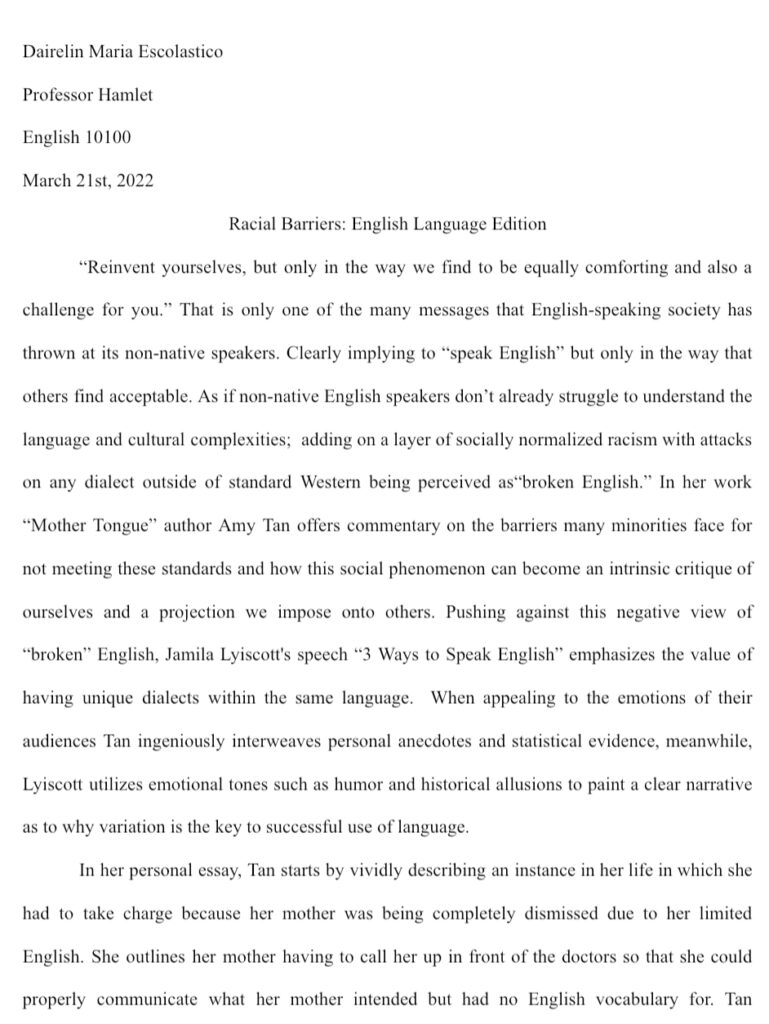
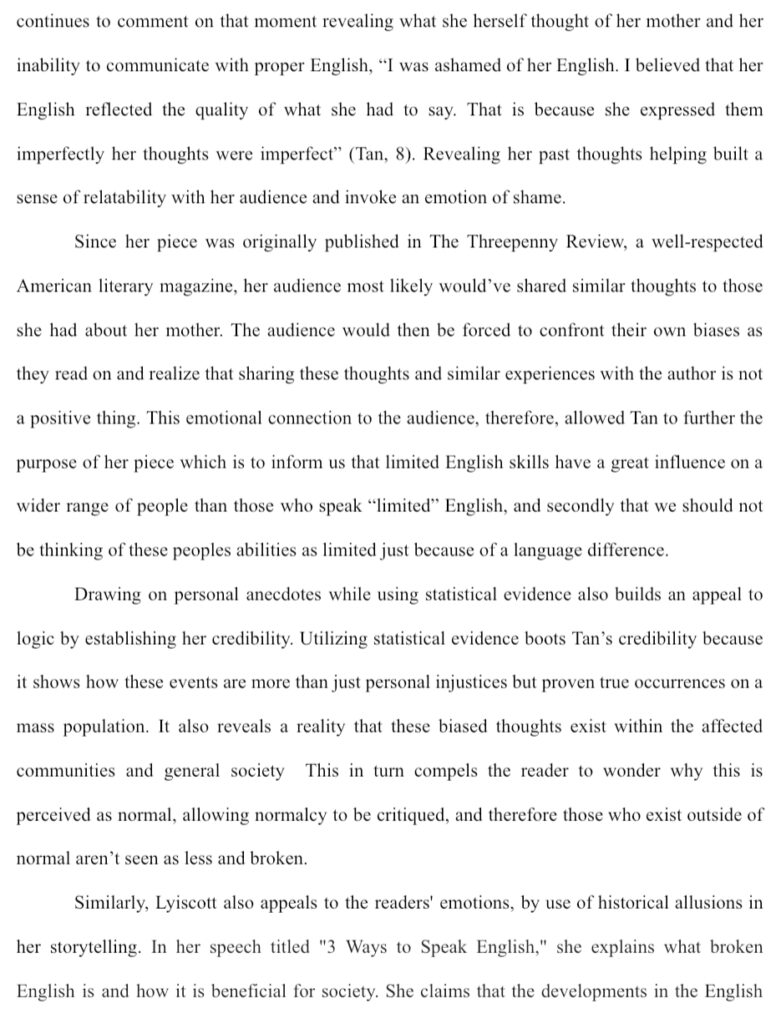
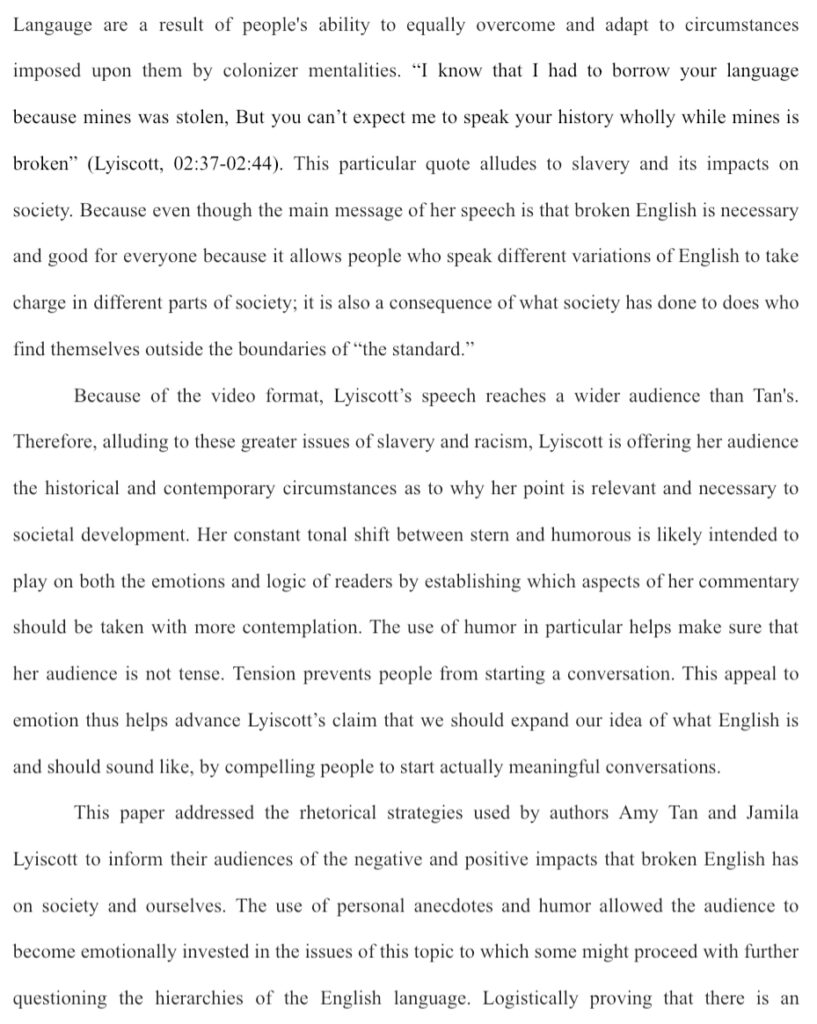
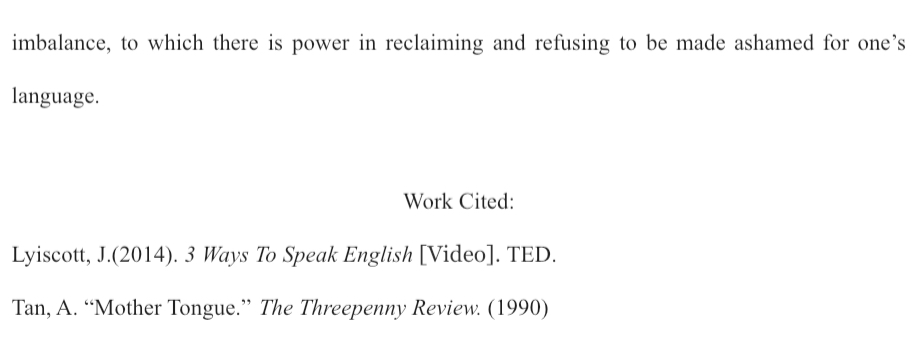
Phase III: The Research Paper
Dear Reader,
I faced many obstacles before even starting a rough draft of this paper. To start, my choice of topic is one of the very few underdeveloped research topics even among seasoned professionals. My topic explores how language impacts minority communities, beyond the clearly derogatory implications of certain slurs. It explores how romanticized language also has an equally harmful effect; how the use of these two widely different methods of using language have resulted in issues of misrepresentation of the intended messages. Again, a very convoluted topic in which my thesis was always evolving, even now as I finish this assignment at hand.
Originally I believed the topic would be an easy argument to make because it’s had a recent renewal of interest in the past few years, but it appears that though the interest in the topic has increased greatly, the amount of recent quality research has not. The course outcome I choose to focus on for this essay was learning to “locate research sources (including academic journal articles, magazine and newspaper articles) in the library’s databases or archives and on the Internet and evaluate them for credibility, accuracy, timeliness, and bias.” Many of my sources only touched upon the topic briefly ultimately taking my research into other adjacent fields of study instead of diving deeper. Though I am aware of the limitations this has caused me, I am grateful for the complexities of the topic because it allowed me to practice my skills of locating valuable research sources.
With the help of City College’s librarians who taught me how to conduct the research as well as helped me find and narrow down useful sources, I was able to find a collection of over ten sources to build and critique my arguments. From a wide range of time, stretching to the late 1990s, the sources allowed me to analyze the change in how the topic was discussed. Eventually, I also took the liberty to critique my sources even those that technically supported my stance. The ability to critique my source material allowed me to realize the limitations of this research and how there is no way for it to remain timeless in its presentation and deductions. Using the source’s inability to be timeless and unbias as a way to show further support for the conclusion I presented, while fully acknowledging that in time even my research will become obsolete to future audiences. And so I leave you with that acknowledgment as you read through my deep dive into this interest of mine.
Sincerely,
Dairelin Maria Escolastico
